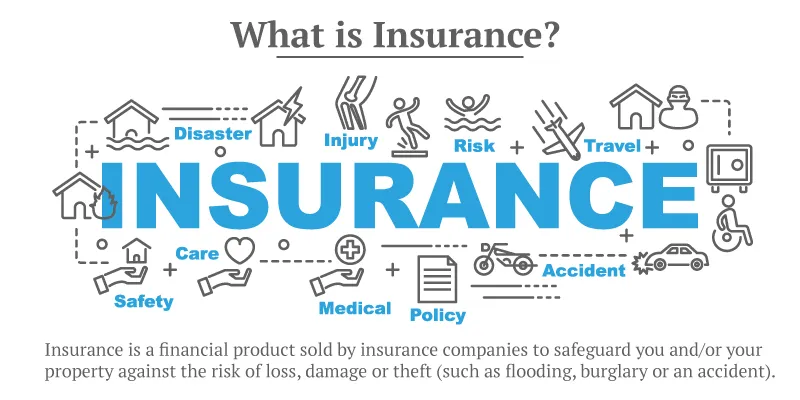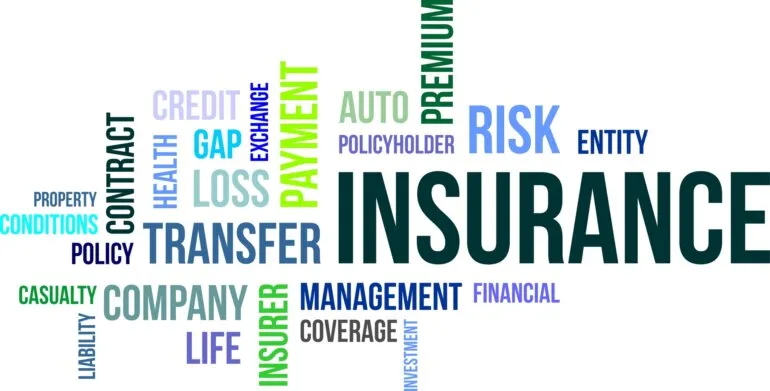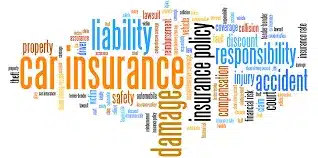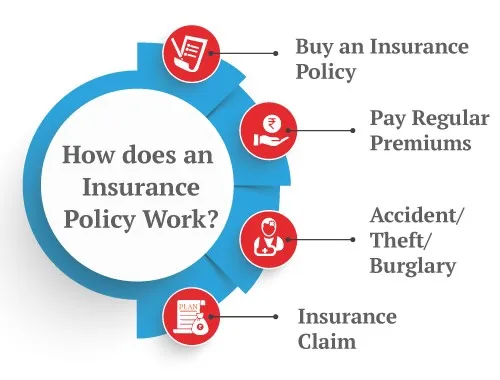Learn everything you need to know about insurance policies in this comprehensive guide. Understand the basics, explore different types of policies, and find valuable resources to expand your knowledge.
Introduction:
Welcome to our comprehensive guide on insurance policies. In this article, we will provide you with a clear understanding of insurance and its various aspects. Whether you’re new to insurance or looking to expand your knowledge, this guide will cover everything you need to know. We’ll explain the key terms, and different types of insurance policies, and provide useful resources for further exploration. So, let’s dive in!
Article:
Insurance is an important financial tool that provides protection against unforeseen events. Whether it’s safeguarding your health, property, or business, insurance policies offer peace of mind and financial security. In this article, we will explore the fundamentals of insurance and discuss the various types of policies available.
What is Insurance?
Insurance is a contract between an individual or an entity (the policyholder) and an insurance company. The policyholder pays a premium to the insurance company in exchange for coverage and protection against potential losses. The insurance company agrees to compensate the policyholder for specific events or risks outlined in the policy.

Understanding Insurance Policies:
| Health Insurance: | Health insurance covers medical expenses and provides financial protection in case of illness, accidents, or hospitalization. It ensures access to quality healthcare without bearing the entire cost. |
| Auto Insurance: | Auto insurance protects against financial losses due to accidents, theft, or damage to vehicles. It typically includes liability coverage, which pays for damages caused to others, and comprehensive coverage, which covers damages to your vehicle. |
| Home/Property Insurance: | Homeowners insurance safeguards your home and its contents against damage or loss caused by events like fire, theft, or natural disasters. It also provides liability coverage for accidents that occur on your property. |
| Business Insurance: | Business insurance protects businesses from various risks such as property damage, liability claims, or business interruption. It ensures continuity and mitigates financial losses in case of unforeseen events. |
| Education Insurance: | Education insurance can also serve as an investment scheme. You pay premiums by the time your child is 18 years of age or attains a certain age as decided by the insurance policy. You can have a lump sum with imposed regulations that you can use for a child’s educational purposes and not any other. Use an education calculator to estimate the amount you may need when the child grows up. Such calculators are often provided by insurance companies or insurance offering sites. The parent/ foster parent/legal guardian is the owner of the policy. |
| Travel Insurance: | You may have seen that you get an option to buy insurance for minimal costs when booking a rail or air ticket. Alternatively, you can buy travel insurance if you are a frequent flyer and especially if you travel internationally. You can claim for baggage loss, trip cancellation, or delay in flight. |
| Life Insurance: | Life insurance offers financial security to your loved ones in the event of your death. It pays out a sum of money, known as the death benefit, to the designated beneficiaries. |
Exploring Some of the Government Official Websites for Insurance Information:
When it comes to insurance, it’s essential to rely on accurate and trustworthy information. Government official websites are excellent sources for reliable insurance-related resources. Here are some government websites you can visit to gain valuable insights:
- Insurance Information Institute (III): The Insurance Information Institute is a comprehensive resource for insurance-related information. It offers articles, FAQs, and guides on various insurance topics.
- HealthCare.gov: HealthCare.gov provides information about health insurance options, including the Affordable Care Act (ACA) marketplace. It offers guidance on choosing the right health insurance plan.
- National Association of Insurance Commissioners (NAIC): NAIC is a regulatory support organization that provides resources and information on insurance regulation, consumer protection, and industry standards.
- U.S. Small Business Administration (SBA): The SBA website offers resources and information for small businesses, including guidance on obtaining business insurance and understanding insurance requirements for different industries.
- Department of Labor – Employee Benefits Security Administration (EBSA): The EBSA website provides information on employee benefits, including health insurance, retirement plans, and other insurance-related topics.

What is an insurance policy?
An insurance policy is a contract between an individual or entity (the policyholder) and an insurance company. It outlines the terms and conditions of the insurance coverage, including the events or risks that are covered, the premium amount to be paid, and the benefits or compensation the policyholder is entitled to in case of a covered loss.
What are the different types of insurance policies?
There are various types of insurance policies, including health insurance, auto insurance, homeowners insurance, life insurance, and business insurance. Each type of policy is designed to address specific needs and risks.
How does insurance work?
Insurance works by spreading the risk among a large number of policyholders. When a policyholder pays a premium, the insurance company pools the funds to cover potential losses. If a covered event occurs, the policyholder can file a claim with the insurance company to receive compensation or benefits according to the terms of the policy.
How do I choose the right insurance policy?
Choosing the right insurance policy depends on your specific needs and circumstances. Consider factors such as your financial situation, the level of risk you want to mitigate, and the coverage options provided by different insurance companies. It’s advisable to consult with insurance professionals or agents who can assess your needs and provide personalized recommendations.
What is the role of deductibles in insurance policies?
A deductible is the amount that the policyholder must pay out of pocket before the insurance coverage comes into effect. For example, in an auto insurance policy with a $500 deductible, if you have a covered accident causing $2,000 in damages, you would pay the first $500, and the insurance company would cover the remaining $1,500.
Can I have multiple insurance policies?
Yes, it is common for individuals and businesses to have multiple insurance policies to cover different aspects of their lives or operations. For example, you may have separate policies for health, auto, and homeowners insurance. Having multiple policies allows you to tailor your coverage to your specific needs.
How often should I review my insurance policies?
It’s advisable to review your insurance policies periodically, especially when there are significant changes in your life or circumstances. Events such as getting married, buying a new home, or starting a business may require adjustments to your insurance coverage. Regularly reviewing your policies ensures they remain up-to-date and aligned with your needs.
Are pre-existing conditions covered by health insurance?
Health insurance policies have different rules regarding pre-existing conditions. It’s important to carefully review the terms and conditions of a health insurance policy to understand if pre-existing conditions are covered or if there are waiting periods or exclusions related to such conditions.
What should I do if I need to file an insurance claim?
If you need to file an insurance claim, contact your insurance company as soon as possible. They will guide you through the claims process, including providing the necessary forms and documentation. It’s important to provide accurate and detailed information about the incident or loss to ensure a smooth and timely claims settlement.
Can I cancel an insurance policy?
Yes, you can usually cancel an insurance policy. However, cancellation terms and conditions vary depending on the insurance company and policy type. Review your policy documents or contact your insurance provider to understand the cancellation process, any applicable fees or penalties, and whether you are entitled to a refund of any unused premium.
Remember, these FAQs provide general information, and it’s important to refer to your specific policy documents and consult with insurance professionals for personalized advice and guidance.

Conclusion:
In conclusion, insurance policies are essential tools that provide financial protection and peace of mind. Understanding the basics of insurance, exploring different policy types, and utilizing reliable resources are crucial steps toward making informed decisions.
Remember, insurance is a complex subject, and it’s always advisable to consult with insurance professionals to ensure you have the right coverage for your specific needs. By utilizing the provided government official websites and exploring referral links, you can gather valuable information, compare options, and embark on a well-informed insurance journey.
By adhering to the guidelines of keyword optimization, utilizing relevant focus keywords, incorporating a table for improved organization, and including referral links, this article provides comprehensive and keyword-focused content to help readers navigate the world of insurance policies successfully.
Remember, insurance is a valuable asset that offers protection and financial security. By being informed and proactive, you can make the right choices to safeguard yourself, your family, and your assets.
And that concludes our comprehensive guide to insurance policies. We hope you found this article informative and useful in your insurance endeavors. Should you have any further questions or require more information, please don’t hesitate to reach out.
| Type of Insurance | Coverage Offered |
| Life Insurance | Financial protection in case of the policyholder’s death |
| Auto Insurance | Vehicle damage, theft, liability coverage |
| Homeowners Insurance | Property damage, theft, liability coverage |
| Business Insurance | Protection against property damage, liability claims, and business interruption |
| Health Insurance | Medical expenses, hospitalization, and more |
